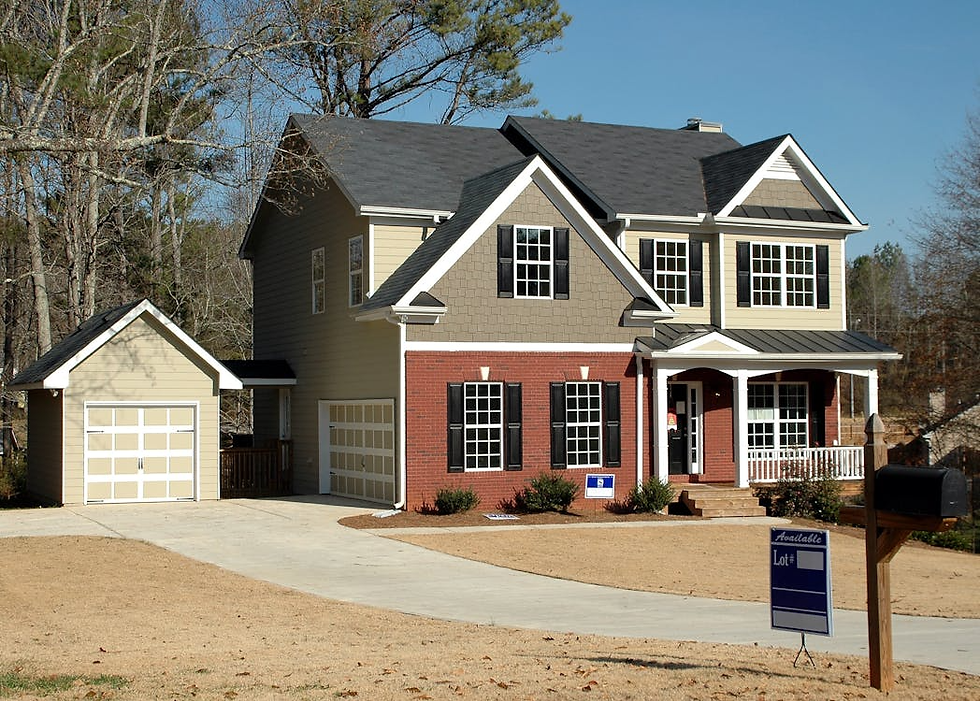Questions to Ask Before Starting a Home Siding Project
- Staff Desk
- Aug 1
- 4 min read
Updated: Aug 2
Choosing to embark on a home siding project is a significant decision. Your home’s exterior defines its character, impacts energy efficiency, and affects its curb appeal. Before diving into this renovation, it's necessary to pose the right questions to ensure you're making informed choices. From material options to contractor selection, each aspect requires careful consideration. This guide explores important questions that can guide you through the process and help ensure your project is a success.
What Are My Siding Material Options?
The first question you should consider before starting a siding project is what material options are available. Siding materials come in a variety of types, each with unique benefits, costs, and aesthetic appeals. Common options include vinyl, cedar, fiber-cement, aluminum, and stucco. Vinyl is often preferred for its durability and low maintenance, while wood siding brings warmth and a natural look. Fiber-cement offers versatility in design and superior resilience, making it suitable for various climates.
Cost factors play a crucial role in your decision. While wood siding can be visually appealing, it may require more maintenance and cost more in the long run compared to vinyl. Prioritize materials based on your budget, climate, and long-term goals. Consulting with a professional can help clarify which option aligns with your needs.
How Do I Know Which Company to Choose?
Selecting the right siding contractor is as critical as choosing the right material. Begin by researching local companies and checking their reputations online. Look for reviews and testimonials that reflect the experiences of past customers. Trustworthy contractors will have a portfolio showcasing previous projects, giving you insights into their expertise and craftsmanship.
It's important to verify licenses, insurance, and certifications. This ensures their credibility and protects you from liability in case of accidents during the project. Ask for references and contact previous clients to inquire about their satisfaction levels. Choosing a reliable expert, such as a siding contractor in Long Island, helps guarantee that your project will be executed professionally and to your specifications. Investing time in selecting the right company can save you money, stress, and future repairs.
What Is My Budget?
Establishing a clear budget is paramount for any home improvement project. Consider all factors included in the siding installation, such as materials, labor, permits, and related expenses. Creating a detailed budget helps prevent unexpected costs down the line. Research average prices for the siding materials you’re interested in, and factor in labor costs, which can vary significantly based on the company and the project's complexity.
When negotiating with contractors, maintain open communication about what your budget allows. Be upfront about your financial constraints, and don't hesitate to ask for a detailed quote that breaks down costs. Prioritize important elements that align with your needs and explore financing options if necessary.
What Is the Expected Lifespan of the Siding?
Understanding the longevity of your chosen siding material can significantly impact your decision. Each type of siding has its expected lifespan, ranging from approximately 20 to 50 years, depending on the material and maintenance. Vinyl siding usually lasts around 30-40 years, while wood siding may require more frequent upkeep but offers an authentic look.
Inquire about warranties offered by manufacturers and contractors. Comprehensive warranties can provide peace of mind and protect against unforeseen issues. Knowing the lifespan will help you plan for eventual replacements and maintenance costs, enabling you to choose an option that suits your long-term goals.
How Will This Affect My Home's Energy Efficiency?
Siding plays an integral role in your home's energy efficiency. The right siding can improve insulation and reduce energy bills by maintaining a consistent indoor temperature. Ask contractors about their siding options and whether they provide additional insulation features. Many advanced siding materials are designed to maximize energy efficiency and help reduce heating and cooling costs.
Consider whether you want to integrate insulation during the siding installation. Insulated siding can enhance your home's energy efficiency, making it more comfortable and environmentally friendly. Discussing these capabilities with your contractor can help you make an informed decision that aligns with your green goals.
What Are Local Building Codes and Regulations?
Every municipality has specific building codes and regulations that homeowners must comply with when undertaking renovations. Before starting your siding project, familiarize yourself with local requirements regarding siding materials, installation practices, and any necessary permits. Ignoring these regulations can lead to costly fines and complications down the road.
Your chosen siding contractor should have a thorough understanding of local regulations. They can assist you in obtaining permits and ensure that the project is compliant. Knowing the local codes protects you legally and ensures the long-term integrity and safety of your siding installation.
Embarking on a home siding project requires thorough consideration and planning. By asking these crucial questions, you'll be equipped with the knowledge needed to make informed decisions that reflect your style and financial goals. Taking the time to research materials, contractors, and building codes will ensure your project runs smoothly and stays within budget.





Comments